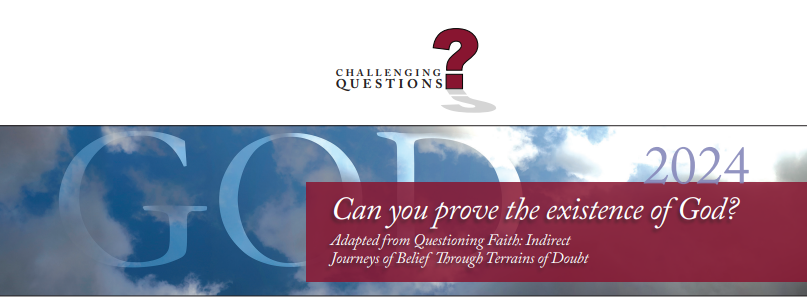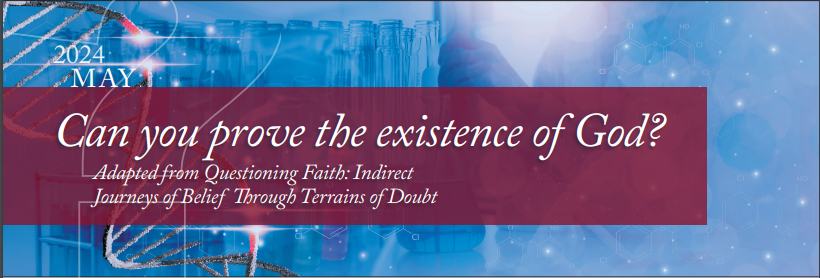If confidence is a more realistic expectation than certainty, perhaps we should look for pointers instead of proofs. A short search on the Internet for debates between atheists and Christians can lead to exchanges about proofs of God’s existence. Introductory philosophy textbooks recount so-called proofs by Anselm, Aquinas, Augustine, and others (even some whose names don’t begin with A). They attach labels like ontological, cosmological, moral, and teleological. I’ve invited friends to debates about this issue, and I’ve even sponsored some. I’ve been embarrassed when these “proofs” failed to prove. If a skeptic can find one hole in one of the arguments, I’ve doubted if even Anselm, Aquinas, or Augustine could have turned the tide.
But what if we don’t really need a proof? What if we only need pointers that suggest a belief in the supernatural makes more sense than a rejection of the supernatural? What if you can’t prove Jesus really said the things the New Testament claims He said, but the archaeological, historical, and manuscript evidence points far more in the direction of acceptance than dismissal?

What if you can’t prove God created the world with a sense of order or design, but all the complexity and beauty in the physical universe suggest this is more likely than the conclusion that all this happened through chaos and chance?
If we’re seeking confidence more than certainty, one factor can help toward our goal: coherence. If all belief systems contain things we can know and things we can’t, we should look to see which systems hold together best or which beliefs resonate with the reality we see all around us.
Here is an illustration. Let’s say you’re walking in the woods and come upon a turtle sitting atop a tree stump three feet off the ground. Picture it. Knowing what you know about trees and turtles, a few conclusions seem more likely than others. We know trees don’t just stop growing with a flat surface on top. We know people often cut down trees with saws that make for a flat surface on a tree trunk. We also know that turtles crawl horizontally and can’t ascend three-foot vertical planes. We could conclude that (a) someone cut down this tree, and (b) someone lifted the turtle and put it on top of the stump. Or we could conclude that (a) the tree stopped growing and part of it fell off, leaving a flat surface on the stump, and (b) the turtle climbed up the vertical surface until it got to the horizontal plane and stopped for a rest. One conclusion coheres better with what we know about the reality of trees and turtles.
Now let’s consider some issues more important than how a turtle got on top of a tree stump. We live in a world with many competing perspectives—some religious and some naturalistic. A Christian perspective says we live in an ordered world created by a good God who made people in His image. The naturalistic perspective believes we evolved by random chance in a universe without any purposeful cause.
We also live in a world where people value equality and respect. Which belief system supports our commonly held values? How did we arrive at believing we should treat people with impartiality and kindness?
We can’t know with absolute certainty how or when our world was created or grasp all the complexities of human existence. But I want to suggest that we can have a high level of confidence that it makes more sense to believe we live in a created world with a personal God than to believe we are nothing more than cosmic accidents. I say this because we treat people with dignity and fairness, or at least we believe we should. And values like equality and respect cohere better with the Christian view than the naturalistic one.
What tips the scales in favor of belief in God is the life, teaching, death, and resurrection of Jesus of Nazareth. The New Testament claims, “No one has ever seen God, but the one and only Son, who is himself God and is in closest relationship with the Father, has made him know.” (John 1:18, NIV) The invisible God took on visible flesh so that we could know that He exists. More than that, we can experience God’s love for us, displayed most powerfully when Jesus died to atone for the sins of people who were made to relate to their creator. Jesus’s teaching about God’s nature has captivated the hearts and minds of millions of followers for centuries. This kind
of confidence can transform doubtful skeptics into joyful worshippers.












